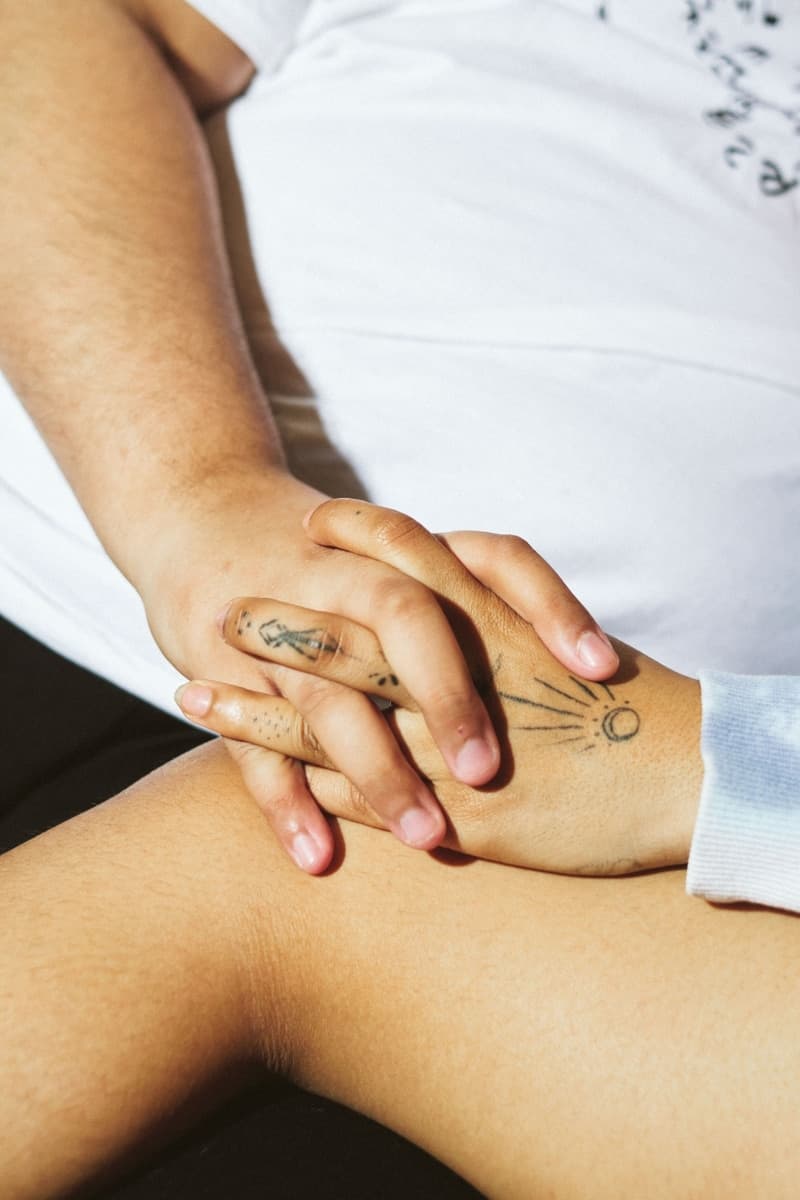Dyspareunia and Painful Sex: A Q&A with Dr Sarah Ashton

Sex is meant to be pleasurable, right? But for some, it’s marked by pain, fear, or confusion. Dyspareunia, the medical term for persistent or recurrent pain during sex, affects up to one in five women and people assigned female at birth. Yet despite how common it is, sexual pain remains heavily stigmatised, under-researched, and frequently dismissed in clinical settings. For queer people, trans and gender-diverse folks, and survivors of trauma, the experience of dyspareunia can be even more complex, Grace Coleiro spoke with Dr Sarah Ashton from SHIPS Psychology, about how to support people with dyspareunia.
Dr Sarah Ashton (she/her) is a registered psychologist and the Director and Founder as SHIPS Psychology (Sexual Health, Intimacy and Psychological Services)
GC: Is it normal to have pain during sex?
SA: Pain during sex can occur for a lot of different reasons. A lot of people will experience it at some point in their life, so in that sense it’s normal. But it’s a signal from your body that something is not working or something isn’t lining up or it doesn’t feel right. And so that’s an indication to get curious, to stop the activity and to really listen to your body and understand what it needs.
Why might someone experience dyspareunia?
There can be medical reasons for dyspareunia, and there can also be psychological reasons. Most of the time I support people because there are psychological reasons and usually a lot of it has come about because someone feels pretty disconnected from their body, disconnected from the signals that their body is giving to them. Maybe there’s a history or a relationship with their body that has meant that they’ve disconnected like trauma, sexual trauma, shaming or stigma that’s attached to sexuality, so that’s particularly relevant for queer women.
Can you expand on issues of shaming and stigma?
Let’s say that somebody grows up in a homophobic environment and those are the sorts of messages that are conveyed in their community and by their parents and their peers and they, without really knowing it, internalise those ideas and those ideas are connected to their sense of social acceptance and attachment. Then as they progress through adolescence, they realise that they’re queer and that really conflicts with all these beliefs and what they have been taught about what’s good and right and also acceptable when it comes to sex and relationships.
And let’s just say that they move away from home, they find some really amazing queer community and friends and support, and they start having their first relationship and they experience dysphoria. And that’s because their body remembers those messages and the underlying fear about social rejection. And so when they try and engage in any kind of way sexually, their body engages in a protective response which involves the muscles contracting in their pelvis. So they experience sexual pain. Even though their conscious mind and their values and their environment and their supportive relationship is amazing; all these underlying beliefs are stored and they influence their experiences here and now. What I would do is support someone to, first of all, identify that and then perhaps to do some trauma processing that relates to those beliefs and those experiences so that they’re not just cognitively engaging with this new way of thinking about themselves and sex, they’re also able to release that on a bodily level as well.
How else do you support someone experiencing this condition?
It’s about getting them to listen to the signals of their body. I wouldn’t be supporting someone to experience enjoyable sex while they’re in pain because those two things don’t really align. We’d want to support someone to find a way of enjoying their body or intimacy in a way that feels safe and connected and pleasurable for them. It’s about exploring what that looks like? How can you communicate what that is if you’re having a partnered experience? Some of the time the body is able to line up with what’s going on and that can alleviate symptoms of dyspareunia. The bottom line is that pain means stop and so if someone is not stopping, it’s important to get curious about why that is. We know that if someone keeps experiencing or doing something that causes pain, it can actually heighten their experience of it because their body and their mind will respond to protect them.
How can pain be psychological for people with dyspareunia?
All pain is real. I think there’s a real history, in particularly in the medical industry, of women not being believed when it comes to pain that they’re experiencing or it being misattributed and there’s actually not enough research being conducted. When we say there’s a psychological cause of pain, it’s not to say that it’s imagined or not. It produces real sensations, and all sensations of pain come from your brain.
How might that manifest?
There’s central sensitisation. So, someone might have painful sex on one occasion, or they might have a postpartum injury. And then if you experience pain and you feel fear about experiencing that pain again, and it can heighten your brain focussing in on all the sensory information that it’s getting from that part of your body. And then it can actually make you feel like the pain is more intense. And your body says, ‘hang on, this pain is happening we need to respond with even more protection’. So you might have heightened nerve ending sensations, or you might have more response from your pelvic floor physio. And then that continues in a cycle.
It’s really interesting how the body stores stress and trauma it shows how connected the mind and body are.
It’s just [the body] trying to help us, it’s saying ‘this was relevant in this situation before maybe you should pay attention to this now’. If we don’t process that and make sense of it, which is what happens with trauma, it’s information that overwhelms your capacity to make sense of or integrate information, then we can’t put it into perspective and kind of go, okay, that was that situation, these were the reasons why that happened, and we’re safe now, we’re okay now.
A lot of the time, people who experience dyspareunia think their body’s the enemy, or it’s against them, you know, like, ‘gosh, I’m so frustrated, why do I experience this pain, I want to be able to have great sex and connected sex, why is my body doing this?’ And really, your body is trying to help you. And part of therapy is about developing that connected relationship with your body, your body or your vulva again. You learn to listen to it, love it, respect it, mirror it, integrate it.
Have you had a lot of clients that have had difficulties with accessing healthcare, specifically procedures like pelvic exams and ultrasounds, because of their dyspareunia and queer identities?
Usually the kind of problematic or difficult aspect of accessing care that relates to the pelvis or genitals is that sometimes the process or the healthcare isn’t particularly trauma informed or inclusive or client led. There’s often a lot of reports of dynamics that are not particularly consensual, let’s just call it that, or that don’t allow the client to lead with agency. So medical traumas are really common as well and can sometimes make symptoms even worse. From my point of view, that would be the major issue with access. Having said that, there are some fantastic healthcare practitioners who are really mindful of trauma and gender dysphoria and agency and consent and bodies, but more training is needed on the whole so that we can make that process safe and accessible.
What are some ways that queer people with dyspareunia can look for practitioners that are trauma informed?
You as a client or as a patient, depending on what terminology you’re using, absolutely have the right to ask these sorts of questions. Ask is this practitioner trauma informed? What’s their process for this procedure? Sometimes it can be helpful if you’re seeing a psychologist for that psychologist to write a support letter so that you can send that ahead of time or you can bring it with you so that practitioner can read these are the things that I need during this process. This is how I’d like you to refer to these body parts. This is what I’d like you to ask for, all those sorts of things. I’ve supported clients by just doing some future focused trauma processing. So, if they have a feared outcome associated with the procedure, for instance, we can do some processing around that beforehand so that they’re feeling less activated in that context. The important message is you deserve to access health care and your psychologist can support you to advocate for what you need if it’s not a service that’s already trauma informed and queer inclusive.
Where to
find support
Looking for someone to talk to?
Find peer groups, community organisations and referral pathways for LGBTIQ+ women and gender diverse people.




